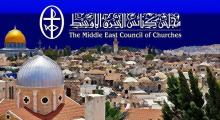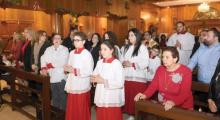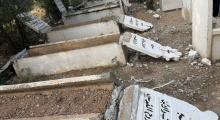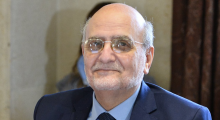Issued by the Catholic Center for Studies and Media - Jordan. Editor-in-chief Fr. Rif'at Bader - موقع أبونا abouna.org
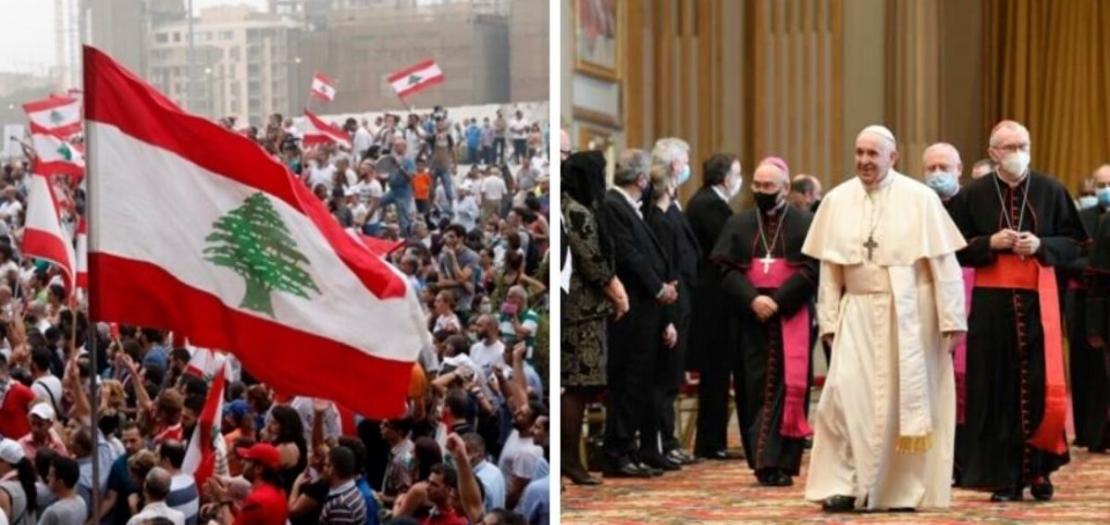
With the ecumenical meetings on July 1st in the Vatican, the pontiff intends to entrust Christians with a role of stability for the country. Political wills must be united and placed at the service of the nation. Nunzio Spiteri. His concern for Lebanon is hidden in the Pope's words. It is experience of coexistence that must remain free.
The main aim of the ecumenical meeting convoked by Pope Francis for next July 1 in the Vatican is to invite the Churches in Lebanon to reflect on the role they can play in the return to political stability of the country of the cedars, thanks to them calling Christians to unite their political will and put them at the service of a plural and free nation, a messenger of internal harmony and coexistence.
The announcement came on Sunday, 30 May, during the recitation of the Angelus, in St. Peter's Square. Informing of the decision, Vatican News writes: "On July 1, Pope Francis will receive the leaders of the Christian communities of Lebanon at the Vatican, to discuss the profound crisis that the country has been going through for several months, further proof of the Holy Father's concern for Lebanon. and for the Lebanese ."
For Pope Francis, the Vatican news agency adds, it will be "a day of reflection on the troubling situation in the country and to pray together for the gift of peace and stability". The Holy Father concludes by entrusting this event to the intercession of the Mother of God and invoking "a more peaceful future for the beloved Lebanon".
"The meeting will be held in the spirit of the Bari meeting (in 2018)" underlines the Apostolic Nuncio to Lebanon, Msgr. Joseph Spiteri, evoking the memory of a historical ecumenical meeting during which about sixty bishops from various Mediterranean nations gathered around the theme: "Mediterranean, frontier of peace".
"All the heads of the Catholic, Orthodox and Protestant Churches of Lebanon are invited" the nuncio specifies, strongly denying the previously filtered news according to which lay leaders will also be present.
“However - he continues - a prayer meeting presided over by the Pope in St. Peter's Basilica, in the afternoon, will be open to those who wish to participate. It will obviously be held in the presence of the heads of the Churches of Lebanon, in addition to the presence of the presidents of the Congregation for Eastern Churches and for the Pontifical Council for the Promotion of Christian unity, together with diplomats and officials representing Lebanon at the Holy See ".
The Pope’s solicitude
"In the harsh words used by the pope, his concern is hidden, like in a cave," explains the apostolic nuncio. In this way, the word "concern" hides the renewed and restless attention that Francis has for Lebanon; in the words "stability" and "more serene future" you can easily read against the light "the elements that are missing at this moment in the Land of Cedars".
“On the government front, there has been no progress - regrets Msgr. Joseph Spiteri - as time is running out and electoral deadlines are looming on the horizon. One wonders what game some are playing" continues the nuncio, according to whom the will to fight against corruption "is not unanimous".
The nuncio is also convinced, unlike the Speaker of Parliament, that the causes of the blockade are "internal and personal", that there are also "external causes" behind the government impasse, refusing, however, to want to place the responsibility on one side or the other.
The diplomat also finds it unfortunate that "the needs of the country are so evident but that we continue to act as if nothing is wrong". He then notes that over half of Lebanese live below the poverty line. Sure, he admits, a part of the population continues to live normally, but can this be a reason to “forget the part that is sinking under an unbearable burden? Should we wait for inequalities to grow and for 90% of the population to find themselves in conditions of need?”
The identity of Lebanon is in danger
The nuncio recalls that in previous declarations made this year (on February 8, receiving greetings from diplomats accredited to the Holy See, as well as in a letter addressed to the head of state Michel Aoun), the Pope had voiced concern over the risk that the Lebanon would "lose its identity" as the crisis continues and "find itself even more involved in regional tensions".
"Lebanon - the pontiff said in a letter addressed to the president a few weeks ago - cannot lose its identity, nor the experience of fraternal coexistence that has made it a message for the whole world".
“Furthermore, it is necessary - concludes Msgr. Spiteri – that this living example of coexistence remains free".


